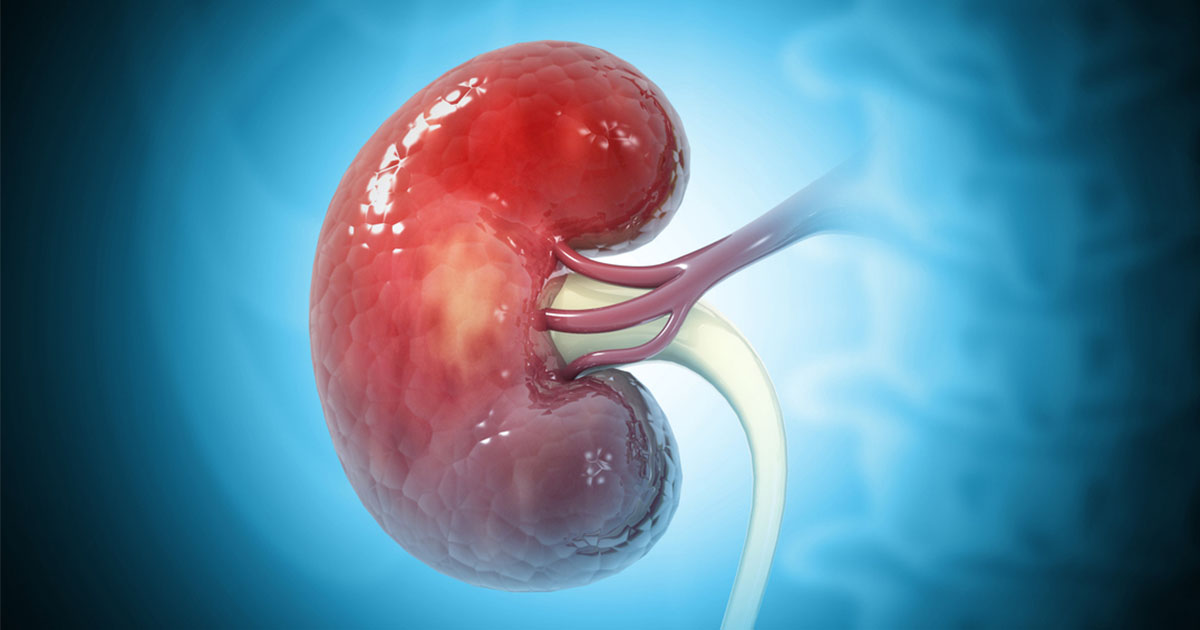The job of the GP with a Special Interest (GPwSI) has become established since it was first announced in the NHS Plan of 2000 (Department of Health [DoH], 2000). The GPwSI in diabetes could be involved in a variety of roles. One is working with a primary care trust (PCT) on service re-design, developing care pathways and assisting with the development of practice-based commissioning. A second is a clinical role delivering agreed diabetes services for the PCT, as detailed by Holmes (2005). There is also a role educating people with diabetes and clinical staff.
Soon after the GPwSI in diabetes job was announced it became apparent that training and accreditation were required. Karet (2005) acknowledged the need for a programme to address this.
Background to the Aintree course
The University Hospital Aintree’s catchment PCTs of South Sefton, North Liverpool and Knowsley identified diabetes as one of the chronic diseases in need of investment. This was the result of PCT visits by a team from the Centre for Healthcare Development (now Innove). Local baseline assessments followed. Different needs were identified by the three PCTs but all of them agreed on the requirement for a consultant diabetologist and sessions based in the community. The baseline assessments had identified the need for community teams to assist in the delivery of diabetes care within the community. It was also agreed that GPwSIs were required, and these were recruited.
It soon became apparent that a training course and a form of accreditation were required. Such courses were already available for GPwSIs in other specialities, such as dermatology and cardiology. In addition, there was some literature available. The DoH and the Royal College of General Practitioners (RCGP; 2003) had developed guidelines for the appointment of GPwSIs. There was also a guide to setting up a GPwSI service (National Primary and Care Trust Development Programme [NatPaCT], 2003).
The core competencies required to deliver a service within the three PCTs were identified and compared with the information available (DoH and RCGP, 2003; Joint Committee on Higher Medical Training, 2003; NatPaCT, 2003). It was obvious to both the consultant and the GPwSIs, however, that there was no detailed guidance for either training or accreditation. A local training and accreditation programme had to be developed (Taylor et al, 2006).
Training programme
The community consultant, as the lead clinician for the training programme, liaised with consultant colleagues in local acute trusts to develop a syllabus for the training programme which met local needs and, more importantly, covered all aspects of diabetes care. This was not fixed as the role was still evolving and it was anticipated that the syllabus might change while the course was running. Once the syllabus was established it was agreed with the clinical governance leads of all of the PCTs involved to ensure that it met the requirements of primary care. The accreditation process was also established with the clinical governance leads, as were lines of accountability. The importance of this has been acknowledged (Holmes, 2005).
A portfolio of learning was developed to allow the trainee GPwSI to record baseline learning needs. The appendices to the portfolio detail the general and specific competencies required as a GPwSI. It extensively covers all aspects of diabetes care with the emphasis on type 2 diabetes. We believe that the portfolio is a valuable tool for self-directed learning.
Clinical and theoretical programme
The clinical and theoretical elements of the training ran in parallel with weekly consultant-supervised diabetes clinics in the Walton Diabetes Centre, as well as afternoon workshops.
It was anticipated that a total of forty clinic attachments would be required for the course. The clinics were, initially, mixed general diabetes clinics, although at a later date trainees attended specialist lipid management clinics, diabetic eye clinics and renal clinics, as well as specialist nurse-led insulin start clinics.
The workshops covered all aspects of diabetes care, such as dietetics and podiatry. Members of the community diabetes team were the workshop leads for their own topics. In addition, the trainees undertook presentations on aspects of diabetes care, as well as case analyses from the hospital clinics and from their GP clinics. Time was allocated for useful topics such as motivational interviewing, which was very useful for general practice surgeries.
Academic and education programme
University Hospital Aintree hosts the well-established University of Liverpool MSc Clinical Diabetes module. This replaced the more general workshops for the Spring Term session of the GPwSI training. It allowed the trainees to mix with hospital juniors training in diabetes and look in depth at specific aspects of diabetes.
The Clinical Diabetes module is a lecture course with the opportunity to discuss problems in the lectures with consultants and senior lecturers. The trainees are marked on a presentation and an essay. The course can prove to be quite intensive – particularly after years away from academic life – but it is well worth the time invested in it, we feel. The course has been adapted to cover the requirements of the GPwSIs as well as the hospital trainees.
The need to refine educational skills was not forgotten. Two routes were available to each trainee, depending on the individual’s learning needs. The trainee was given the opportunity to attend either the University of Liverpool GP training foundation course or the postgraduate general practice teaching skills course. Anecdotally, the general practice teaching skills course has proved beneficial when delivering educational talks to GP colleagues. It has also assisted in delivering educational sessions for people, either in standard consultations or in groups.
Portfolio
A portfolio was produced with the intention of it being the key to the developing roles of the GPwSI in diabetes. It started life as a manual to assist in the assessment of baseline learning needs and objectives. In addition, it encouraged the trainee to establish a culture of assessing learning needs on a regular basis. This is a role that it can fulfil beyond accreditation.
The portfolio allows the trainee to keep a record of clinics, tutorials and workshops attended, and it serves as a repository for interesting case analysis and discussions with the consultant mentor. The portfolio should expand, we feel, to allow the trainee to keep relevant materials which may prove useful in the future as well as providing talking points for accreditation or revalidation assessments.
The portfolio prompts the trainee to undertake critical incident analyses. The trainee is also prompted to perform audits of the diabetes care performed in his or her own practice and to store the results in the portfolio to demonstrate the care delivered.
Accreditation
Accreditation falls into two parts: formal clinical assessment and PCT accreditation. It is accepted by trainees, consultant mentors and clinical governance leads that accreditation must include satisfactory clinic attendance and completion of the Clinical Diabetes module. It should also involve assessment of the learning portfolio.
We have found that a formative assessment by two consultant diabetologists based on structured case discussions has been the key to the accreditation process, as it leads to the learning needs for the next session being formulated. This assessment allows formal accreditation to be undertaken by the PCT teams responsible for primary care modernisation and clinical governance appraisal. It takes the form of a joint meeting between the trainee GPwSI, his or her consultant mentor and a GP appraiser.
The general practice roles are reviewed at the same time as the GPwSI roles. General practice appraisals and GPwSI portfolios are looked at, as are general practice diabetes service reviews. This should result in agreement of learning needs for the next 12 months. Involvement of the consultant mentor is important at this stage as this individual must be involved in agreeing the objectives for this time period (Holmes, 2005).
Outcome
This training programme was developed in early 2004 and started in October 2004. It proved to be flexible, giving both trainees and consultant mentors the opportunity to adapt the programme to meet the learning needs of GPwSIs. The training programme has the ability to produce GPwSIs who are competent in fulfilling local PCT requirements, and it has the flexibility to support the GPwSIs in their future roles.
Discussion
It is important for GPwSIs in diabetes to have a formal qualification to demonstrate that they have gained additional experience above that of their GP colleagues. At the present time, however, it is difficult to assess the benefits of courses which have been developed. Skills for Health is currently developing competency frameworks.
As GPwSIs, we would like to know that the course we have undertaken will enable us to fulfil all of the competencies required of us to safely deliver high-quality care to people with diabetes. A national framework is urgently required. The NHS is changing rapidly and GPwSIs need to be fit to perform the role required of them. This would help to provide the PCT teams with information needed for the formal accreditation process.
The courses are very time consuming, which can put strain on family and practice life. The Aintree course was a demanding educational programme which impinged on the other PCT roles of the trainee GPwSIs. As with all of these posts, there is an ongoing problem of finding adequate locum cover for the practice. The job of the GPwSI in diabetes is evolving, and solutions to the above problems may be difficult to find.
The Aintree course has given all involved an opportunity to improve dialogue between primary and secondary care. In this locality there is a commitment to service re-design, and the course has helped to spark the development of new care pathways.
There is a need for quality-assured structured education for GPwSIs. We think that this course is a start. Structured education programmes are required for people with diabetes (DoH and Diabetes UK, 2005) and proposed for other professionals involved in delivering diabetes care, by Dr Sue Roberts, National Clinical Director for Diabetes, as part of the Diabetes Workforce Strategy. These are areas that the GPwSI could be involved in. Finally, clear guidance is required, we feel, for others trying to deliver similar local programmes.
Acknowledgement
The authors would like to thank Dr Sue Benbow, their consultant mentor, for taking the time to develop such a rewarding training programme.





Satish Durgam reviews who will be eligible to receive tirzpepatide for weight management and when.
24 Apr 2025